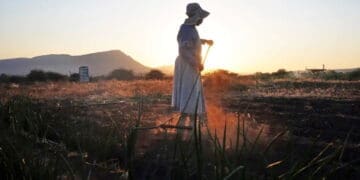South Africa Wine has launched its first Environmental, Social, and Governance (ESG) Position Paper, marking a major step towards a more sustainable, inclusive, and transparent wine industry. South Africa Wine is the national body for the wine industry.
The framework aims to embed responsible practices throughout the wine value chain, from producers and cellars to suppliers and exporters, while aligning with global expectations regarding sustainability and ethical trade. The organisation says the paper represents a milestone for the sector, striking a balance between international standards and local realities.
South Africa Wine’s Chief Executive Officer, Rico Basson said the ESG framework is a practical tool, not a rigid compliance requirement. It is designed to help businesses navigate growing global demands for accountability.
“Our ESG journey will be uniquely South African, pragmatic, people-centred, and evidence-based. We invite all stakeholders to engage with this initiative because it helps build a better future for our land, people, and position in the global market,” Basson said.
South Africa’s wine industry has long been admired for its resilience, quality, and innovation. However, as investors and consumers increasingly demand transparency, ethical sourcing, and measurable impact, ESG principles are becoming central to competitiveness.
Sarah Krone, owner of The Wine Ride in Cape Town and representative of independent South African wineries through Robinson & Sinclair, welcomed the initiative but noted practical hurdles for smaller producers.
“The ESG framework provides a unified, credible structure to communicate what many producers have been doing for years, which is to care for the land, invest in people, and operating transparently. For export markets in Europe and North America, this strengthens buyer confidence and opens doors where ESG compliance is now essential,” Krone said.
She explained that smaller wineries face resource and capacity challenges in adopting ESG standards.
“Many already practice sustainability intuitively but lack the capacity to measure or document it to ESG standards. Turning those practices into quantifiable, auditable data without losing focus on day-to-day operations is the biggest hurdle,” she said.
Krone further suggested that support mechanisms, including simple toolkits, measurement guides, shared digital reporting platforms, and access to small business grants or consultant resources, could help smaller producers integrate ESG effectively.
“Collaboration across the industry from producers to exporters to government will make it easier for smaller players to adopt ESG meaningfully rather than superficially,” she said.
Gerard Martin, Research, Development, and Innovation Executive at South Africa Wine, said the position paper identifies key ESG themes for the South African wine sector and lays out a phased implementation plan.
“It recognises the role of government, civil society, academia, and trade in supporting progress, and establishes a foundation for monitoring, reporting, and continuous improvement. The initiative reflects intensive consultation across the wine value chain, incorporating the views of producers, cellars, suppliers, workers, researchers, and policy influencers,” Martin said.
The ESG Position Paper offers South African wine producers a framework to boost sustainability, increase credibility in global markets, and future-proof their businesses, especially smaller wineries seeking structure and support to scale responsibly.































































